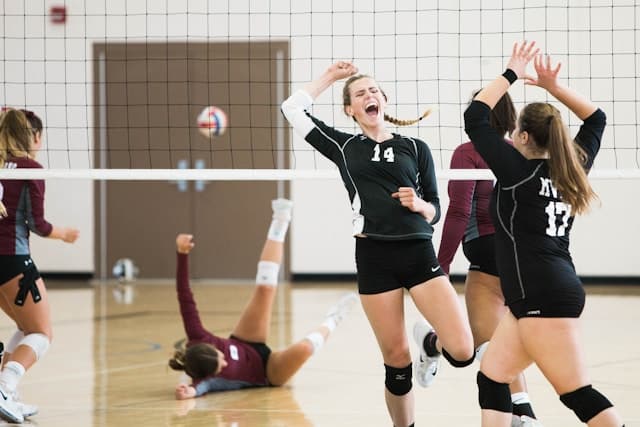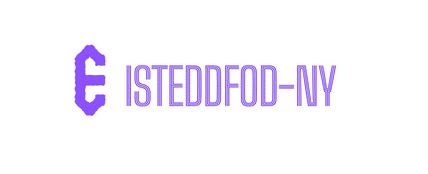What’s the Role of Sleep Tracking Devices in Improving Rest Quality of Professional Volleyball Players?

Professional athletes, such as volleyball players, are always seeking new ways to improve their performance on the court. As the science of sport progresses, various strategies have been implemented to aid in performance enhancement. One such strategy is the use of sleep tracking devices. This article aims to delve into the integral role these devices play in enhancing the quality of rest for athletes, specifically volleyball players. We will also highlight the importance of sleep in the overall performance and recovery of these high-performance individuals.
The Science Behind Sleep and Athletic Performance
"What does sleep have to do with my game?" you might wonder. The science behind sleep and athletic performance is extensive, pointing out the direct correlation between the two. When you sleep, your body gets the time it needs to restore and repair various functions, critical for your athletic performance.
A voir aussi : What Are the Physiological Effects of Compression Garments on Post-Exercise Recovery in Sprinters?
Studies have consistently shown that athletes who get quality sleep have better speed, accuracy, and reaction time. They’re less prone to injuries and have improved mental well-being. For volleyball players, this translates to enhanced on-court performance, from delivering powerful serves to making split-second decisions during a high-stakes match.
Sleep is also crucial for recovery post-training. Elite athletes subject their bodies to intense physical strain during training. Consequently, they need more time to recover. Sleep provides this recovery time, helping to restore the muscular strength lost during training.
Sujet a lire : How Can Video Gaming Strategies Enhance Spatial Awareness in Rugby Union Tacticians?
The Role of Sleep Tracking Devices
In the pursuit of quality sleep, many athletes are turning to the help of sleep tracking devices. These handy gadgets provide valuable data about sleep patterns, duration, and quality, enabling athletes to better understand their sleep habits and make necessary adjustments.
Sleep tracking devices offer a variety of features. Some measure sleep stages, others monitor heart rate and breathing, and some even track movement throughout the night. This data is then analyzed and presented in an easy-to-understand format, often through an app.
For volleyball players, this information is invaluable. It allows them to pinpoint areas of improvement, whether it’s going to bed earlier, cutting down on nighttime activity, or adjusting their pre-sleep routine. By acting on this data, athletes can optimize their sleep and, consequently, their performance and recovery time.
Sleep Differences in Volleyball Players
Volleyball players’ sleep needs may differ from other athletes due to the sport’s unique demands. Volleyball is a fast-paced, high-intensity game that requires quick reactions, agility, and explosive strength. This physical exertion, coupled with the mental strain of competitive play, can significantly impact sleep patterns.
A Google Scholar search brings up numerous studies confirming these differences. Research shows that volleyball players often experience irregular sleep patterns, especially during competitive seasons. This irregularity can negatively impact their performance and recovery.
That’s where sleep tracking devices come in. By providing real-time data, these devices can help volleyball players address their unique sleep needs and adjust their routines for maximum rest and recovery.
How Elite Volleyball Players are Using Sleep Trackers
Elite volleyball players are already harnessing the power of sleep tracking devices to enhance their performance. These high-performance athletes understand that proper sleep is just as important as their rigorous training schedules.
Through sleep trackers, these players gain insights into their sleep patterns. They can see if they’re getting enough deep sleep, which is crucial for muscle recovery and rebuilding. They also learn if they’re spending too much time in light sleep, a stage that doesn’t offer the same recovery benefits.
With this information, players can adjust their routines, whether it’s winding down earlier in the evening, incorporating relaxation techniques before bed, or tweaking their diet for better sleep. All these changes are geared towards one goal: better quality sleep for improved on-court performance.
While we may not be able to confirm all the benefits of sleep tracking devices without extensive, long-term studies, their potential influence on quality sleep in professional volleyball players is undeniable. Through detailed sleep data and insightful analysis, these devices offer a promising avenue for athletes striving for superior performance and faster recovery periods.
Sleep Tracking Devices in Other Team Sports Compared to Volleyball
When discussing the role of sleep tracking devices in improving rest quality, it’s valuable to consider how they are used in other team sports. Sports like basketball, football, and soccer share many similarities with volleyball, such as requiring speed, agility, and mental acuity.
In an article published on PubMed, it was found that sleep duration and sleep efficiency, as measured by sleep trackers, directly correlated with sprint performance in soccer players. Similar studies on Google Scholar have shown that sleep deprivation can severely affect the reaction times of basketball players.
For team sports, the importance of quality sleep cannot be overstated. It is a crucial factor in healing injuries, maintaining mental clarity, and ensuring peak athletic performance. However, the sleep needs of athletes may vary depending on the specific demands of their sport.
Volleyball is a sport that requires rapid fire, explosive movements and a high degree of alertness. This can lead to different sleep necessities when compared to sports with endurance-based activities or consistent lower intensity movements. Research indicates that volleyball players might need more time in the deeper stages of sleep to fully recover from their intense training and matches.
Sleep tracking devices can therefore cater to the unique requirements of each sport, providing highly individualized data. They can help athletes across various team sports, including volleyball, to optimize their sleep routines and, as a result, their performance.
Conclusion: The Future of Sleep Tracking Devices in Professional Volleyball
In conclusion, sleep tracking devices play a vital role in enhancing the sleep quality, and thus the performance and recovery, of professional volleyball players. This article, through multiple PubMed and Google Scholar references, has highlighted the science behind sleep and athletic performance, the role of sleep trackers, and the unique sleep requirements of volleyball players.
Though we may not yet have extensive long-term studies on the effectiveness of sleep trackers, their potential to influence quality sleep in professional volleyball players is evident. These devices, by presenting detailed data and insightful analysis, open up new avenues for improving sleep habits and routines.
Elite athletes, particularly volleyball players, have embraced the use of this technology, using it to gain an edge in their performance. By adjusting their routines based on data, they are taking a step towards optimizing their sleep and overall performance.
In the future, as these devices continue to evolve, we can expect to see even further improvements in the sleep quality of professional volleyball players. As sports science continues to advance, sleep tracking will likely become a norm in the daily routines of elite athletes, further cementing its importance in the realm of professional sports.
By ensuring they get quality sleep, these athletes safeguard their health, enhance their recovery, and ultimately perform at their peak – all thanks to the insights provided by sleep tracking devices. With a good night’s sleep, volleyball players can truly be ready to serve, spike, and score as the best versions of themselves on the court.
As the saying goes, ‘You snooze, you lose.’ But when it comes to professional volleyball players and their sleep, it seems more apt to say, ‘You snooze, you win’.
